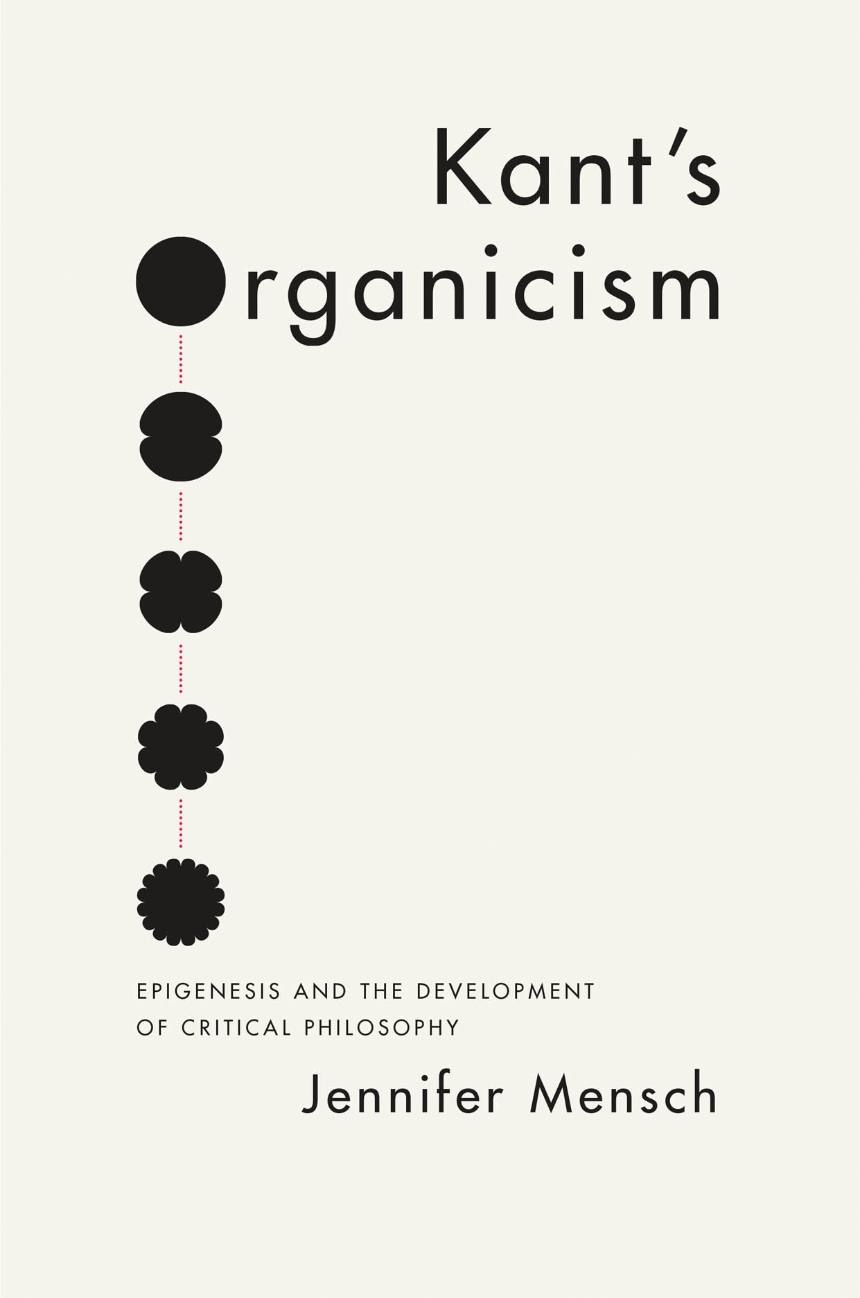Kant’s Organicism
Epigenesis and the Development of Critical Philosophy
9780226271514
9780226021980
9780226022031
Kant’s Organicism
Epigenesis and the Development of Critical Philosophy
Because it laid the foundation for nearly all subsequent epistemologies, Immanuel Kant’s Critique of Pure Reason has overshadowed his other interests in natural history and the life sciences, which scholars have long considered as separate from his rigorous theoretical philosophy—until now. In Kant’s Organicism, Jennifer Mensch draws a crucial link between these spheres by showing how the concept of epigenesis—a radical theory of biological formation—lies at the heart of Kant’s conception of reason.
As Mensch argues, epigenesis was not simply a metaphor for Kant but centrally guided his critical philosophy, especially the relationship between reason and the categories of the understanding. Offsetting a study of Kant’s highly technical theory of cognition with a mixture of intellectual history and biography, she situates the epigenesis of reason within broader investigations into theories of generation, genealogy, and classification, and against later writers and thinkers such as Goethe and Darwin. Distilling vast amounts of research on the scientific literature of the time into a concise and readable book, Mensch offers one of the most refreshing looks not only at Kant’s famous first Critique but at the history of philosophy and the life sciences as well.
Reviews
Table of Contents
Preface
Introduction: Kant’s Organicism
1 Generation and the Task of Classification
Mechanism and the Principle of Life
Leibniz’s Organic Machines
2 Buffon’s Natural History and the Founding of Organicism
Hales and the Physiology of Plants
Buffon the French Newtonian
Maupertuis, Buffon, and the Problem of Form
Natural History and the History of Nature
3 Kant and the Problem of Origin
Kant’s Eclecticism
Matter and Cosmos
The Spectacle of Life
4 The Rebirth of Metaphysics
A Philosophy is Born
From Original Acquisition to the Epigenesis of Knowledge
Concepts and Objects: Kant’s Letter to Herz, 1772
5 From the Unity of Reason to the Unity of Race
The Unity of Reason
The Unity of Race
A Germ of Reason and a Germ for Race
6 Empirical Psychology in Tetens and Kant
Epigenesis and Evolution in Tetens’sPhilosophical Essays
From Empirical Psychology to a Transcendental Theory of Imagination
Transcendental Philosophy and the Physiology of Pure Reason
7 Kant’s Architectonic: System and Organism in the Critique of Pure Reason
The Doctrine of Method: The Bauplan of the System
The Transcendental Deduction: The Bauplan at Work
Organic Logic: A Cautionary Tale
Epilogue: A Daring Adventure of Reason
Notes
Bibliography
Index
